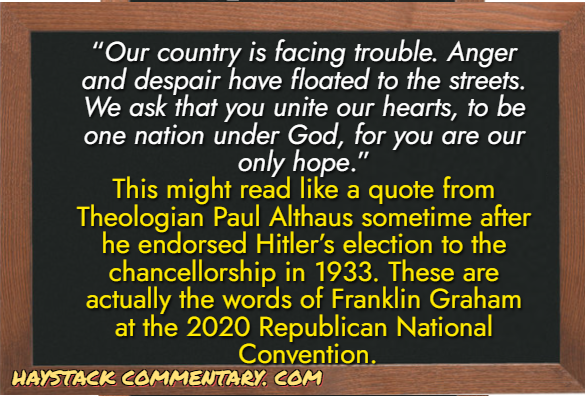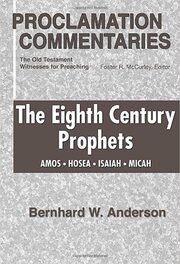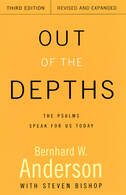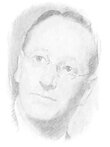- Bob Abernethy - Wilhelmus A'Brakel - Germanos Adam - Jay Adams - Thomas Adams - Eric Alexander - Paul Althaus - Isaac Ambrose - Bernhard W Anderson - Samuel Angus - Ole Anthony - Gleason Archer - Athanasius of Alexandria - Gladys Aylward -
==bob abernethy===========
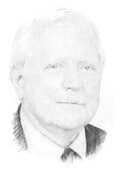
Robert Gordon Abernethy (November 5, 1927 – May 2, 2021) was an American journalist, best known for serving various roles during a 42-year career with NBC News. He later co-created, and was executive editor and host of Religion & Ethics Newsweekly, which aired on PBS from 1997 until 2017. Abernethy took a leave from NBC in 1984 to study briefly at Yale Divinity School in New Haven. He returned to the network a year later to Washington, and in 1989 accepted what would be his final NBC assignment, chief correspondent of the Moscow bureau.
Observers, detractors and preachers of religion who died in 2021
Veteran broadcast journalist Bob Abernethy, who also died in May, moved from covering the fledging U.S. space program and the Soviet Union’s collapse to founding the program “Religion & Ethics NewsWeekly” that aired on PBS for almost 20 years. (Adelle M Banks/Religion News Service 12/30/21)
READ MORE>>>>>
Veteran broadcast journalist Bob Abernethy, who also died in May, moved from covering the fledging U.S. space program and the Soviet Union’s collapse to founding the program “Religion & Ethics NewsWeekly” that aired on PBS for almost 20 years. (Adelle M Banks/Religion News Service 12/30/21)
READ MORE>>>>>
“I very much dislike the intolerance and moralism of many Christians, and feel more sympathy with Honest Doubters than with them.” --Robert Abernethy
“Religion and ethics are very much a part of culture. We can’t examine culture thoroughly unless we look through these lenses. They are a measure of what is happening.” --Bob Abernethy
“Reporters should not have an agenda. Beyond informing, they identify what the underlying principles are in a current issue.” --Bob Abernethy
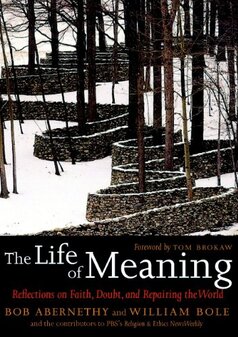
Seven Stories Press (January 4, 2011)
PBS's Religion & Ethics NewsWeekly, which Bob Abernethy conceived and anchors, has been described as "the best spot on the television landscape to take in the broad view of the spiritual dimension of American life . . ." by the Christian Science Monitor. "Finally," wrote the San Francisco Chronicle, "something intelligent on TV about religion." Now, together with his coauthor William Bole, Abernethy has turned his attention to making a book that asks all the big questions—and elicits the most surprising answers from a who’s-who of today’s serious religious and spiritual thinkers from across the spectrum of faiths and denominations. In this thoughtful collection, extraordinary people give their personal and private accounts of their own spiritual struggle. Their insights on community, prayer, suffering, religious observance, the choice to live with or without a god, and the meanings that are gleaned from everyday life form an elegant meditation on the desire for something beyond what we can see and measure.
More than fifty contributors, including Jimmy Carter, Francis Collins, The Dalai Lama, Robert Franklin, Irving Greenberg, Seyyed Hossein Nasr, Harold Kushner, Anne Lamott, Madeleine L’Engle, Thomas Lynch, Martin Marty, Mark Noll, Rachel Remen, Marilynne Robinson, Barbara Brown Taylor, Studs Terkel, Thich Nhat Hanh, Phyllis Tickle, Desmond Tutu, Jean Vanier, and Marianne Williamson.
From Publishers Weekly Starred Review.
Faith and doubt stand in loving tension in this splendid collection edited by Bole, a religion writer, and Abernethy, founder and host of the PBS program Religion & Ethics NewsWeekly. The book draws from the extensive interviews the series has conducted with religious luminaries and writers, some of whom appear more than once. The interviews are loosely arranged into themes of prayer; suffering and the problem of evil; encountering religious pluralism; preparing for death and the afterlife; and the varieties of religious practice. Not all of the contributors describe themselves as religious ("You know what an agnostic is?" asks the agnostic near-centenarian Studs Terkel. "A cowardly atheist"). Most of those profiled, however, have walked a long path of religious devotion, including Desmond Tutu, Jimmy Carter, Thich Nhat Hanh, the Dalai Lama, Anne Lamott, William Sloane Coffin, Martin Marty, Frederica Mathewes-Green and Phyllis Tickle (PW's former contributing editor in religion). With such an amazing cast of characters, it's practically impossible to go wrong, and this collection doesn't miss a step. The section on suffering is particularly perceptive ("I know that where there is no suffering, nothing happens," novelist Madeleine L'Engle says). This is a rich feast of accumulated wisdom.
PBS's Religion & Ethics NewsWeekly, which Bob Abernethy conceived and anchors, has been described as "the best spot on the television landscape to take in the broad view of the spiritual dimension of American life . . ." by the Christian Science Monitor. "Finally," wrote the San Francisco Chronicle, "something intelligent on TV about religion." Now, together with his coauthor William Bole, Abernethy has turned his attention to making a book that asks all the big questions—and elicits the most surprising answers from a who’s-who of today’s serious religious and spiritual thinkers from across the spectrum of faiths and denominations. In this thoughtful collection, extraordinary people give their personal and private accounts of their own spiritual struggle. Their insights on community, prayer, suffering, religious observance, the choice to live with or without a god, and the meanings that are gleaned from everyday life form an elegant meditation on the desire for something beyond what we can see and measure.
More than fifty contributors, including Jimmy Carter, Francis Collins, The Dalai Lama, Robert Franklin, Irving Greenberg, Seyyed Hossein Nasr, Harold Kushner, Anne Lamott, Madeleine L’Engle, Thomas Lynch, Martin Marty, Mark Noll, Rachel Remen, Marilynne Robinson, Barbara Brown Taylor, Studs Terkel, Thich Nhat Hanh, Phyllis Tickle, Desmond Tutu, Jean Vanier, and Marianne Williamson.
From Publishers Weekly Starred Review.
Faith and doubt stand in loving tension in this splendid collection edited by Bole, a religion writer, and Abernethy, founder and host of the PBS program Religion & Ethics NewsWeekly. The book draws from the extensive interviews the series has conducted with religious luminaries and writers, some of whom appear more than once. The interviews are loosely arranged into themes of prayer; suffering and the problem of evil; encountering religious pluralism; preparing for death and the afterlife; and the varieties of religious practice. Not all of the contributors describe themselves as religious ("You know what an agnostic is?" asks the agnostic near-centenarian Studs Terkel. "A cowardly atheist"). Most of those profiled, however, have walked a long path of religious devotion, including Desmond Tutu, Jimmy Carter, Thich Nhat Hanh, the Dalai Lama, Anne Lamott, William Sloane Coffin, Martin Marty, Frederica Mathewes-Green and Phyllis Tickle (PW's former contributing editor in religion). With such an amazing cast of characters, it's practically impossible to go wrong, and this collection doesn't miss a step. The section on suffering is particularly perceptive ("I know that where there is no suffering, nothing happens," novelist Madeleine L'Engle says). This is a rich feast of accumulated wisdom.
==wilhelmus a'brakel============
Wilhelmus à Brakel was born on January 2, 1635, in Leeuwarden, the capital of the Dutch province of Friesland. He was the only son of two very godly parents–a renowned minister of the gospel, Theodorus à Brakel, and Margaretha Homma. The godliness of these parents placed its stamp on the rearing of their son, the only survivor of six children. Wilhelmus was trained in the fear and admonition of the Lord. His mother would at times pray so intensely for him that she would forget herself. Of his father Theodorus, Dr. Fieret relates the following incident recorded in the classic biography of Wilhelmus à Brakel by Dr. F.J. Los: “Following his childhood, Wilhelmus attended the Latin school in Leeuwarden. At that time his father pastored in the village of Beers, southwest of Leeuwarden. Distance made it impossible to travel back and forth each day. He became pastor of Harlingen in 1670, where he labored for three years with great blessing. As Rev. Hellenbroek noted: “The shining forth of the countenance of God upon his ministry was also…evident for him there…. A wondrous change took place under his ministry. He has begotten a multitude of spiritual children there.”
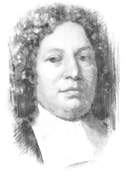 Wilhelmus a’Brakel
Wilhelmus a’Brakel
Fourthly, be not fearful of creatures, as they cannot initiate their own motion. It is God alone who governs and controls them. If you have an encounter with them, God who controls them has sent them. They cannot do anything but execute Gods will. God obstructs them in their activity and causes them to depart again. Who would fear a sword, stick, or stone when it is lying upon the ground and does not move since it is not in anyones hand? If it is Gods will, anyone desirous to curse you will bless you; if they desire to slander you, they will praise you; and if they desire to kill you, they will kiss you. “If God be for us, who can be against us?” (Rom 8:31). And since He is for you, children of God, why do you fear? For all your enemies it is true that it is but as if a terrifying mask conceals the countenance of a friend. “When He giveth quietness, who then can make trouble?” (Job 34:29). Therefore, “Fear not them which kill the body” (Matt 10:28). How quiet a soul may be which, while conscious of his enemies, “dwelleth in the secret place of the most High” and abides under the shadow of the Almighty (Ps 91:1) -- The Christian’s Reasonable Service by Wilhelmus a’Brakel
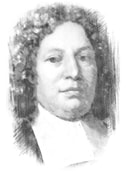 Wilhelmus a’Brakel
Wilhelmus a’Brakel
“God does not prevent anyone from repentance, believing in Christ, and salvation. God is not the cause of anyone’s damnation. Man and his own free will are to be blamed for that fact that he lives an ungodly life, and it is therefore just when God punishes and damns him for his sins.”
― Wilhelmus à Brakel, The Christian's Reasonable Service, Vol. 2
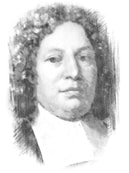 Wilhelmus a’Brakel
Wilhelmus a’Brakel
“Serve the Lord with gladness: come before His presence with singing” (Psalm 100:2). You must know that singing is not a neutral matter in which you may or may not engage. Rather, it is God’s command. As we have shown you before, God requires this from you and desires to be served by you in this manner. Consider these and similar quotes and impress them upon your heart as being mandatory. Begin to engage in this duty with an obedient heart; break open your mouth and your closed heart will open as well.” --Wilhelmus a'Brakel
==germanos adam===============

Germanos Adam (born in 1725 in Aleppo, Syria – died on 10 November 1809 in Zouk Mikael, Lebanon) was the Melkite Catholic bishop of the Archeparchy of Aleppo during the late 18th century and a Christian theologian.
In December 1774 he was appointed eparch and on December 25 of the same year consecrated Melkite Catholic eparch of Acre by Melkite Patriarch of Antioch, Theodosius V Dahan. From 1792 to 1798 he traveled in Italy, where he came in contact with Jansenist circles and in particular with Scipione de" Ricci. Germanos Adam died in Zouk Mikael on 10 November 1809.
In December 1774 he was appointed eparch and on December 25 of the same year consecrated Melkite Catholic eparch of Acre by Melkite Patriarch of Antioch, Theodosius V Dahan. From 1792 to 1798 he traveled in Italy, where he came in contact with Jansenist circles and in particular with Scipione de" Ricci. Germanos Adam died in Zouk Mikael on 10 November 1809.
==jay adams====================
Jay Edward Adams (January 30, 1929 in Baltimore, Maryland – November 14, 2020) was an American Presbyterian author who wrote more than 100 books. His books have been translated into 16 languages, and he received his doctorate in preaching. In 1952 Adams became the pastor of a United Presbyterian church in Eighty-Four, Pennsylvania. Jay Adams was best known as the founder of the modern Biblical counseling movement, launched with the publication of his groundbreaking book Competent to Counsel in 1970. He was a champion for the cause of biblical sufficiency and against the encroachment of secular psychology into the counseling rooms of pastors and Christian laypersons.
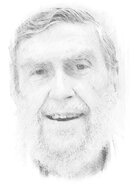 Jay Adams
Jay Adams
"Counselors must recognize that too many Christian give up. They want change too soon. What they really want is change without the daily struggle. Sometimes they give up when they are on the very threshold of success. They stop before receiving. It usually takes at least three weeks of proper daily effort for one to feel comfortable in performing a new practice. And it takes about three more weeks to make the practice part of oneself. Yet, many Christians do not continue even for three days. if they do not receive instant success, they get discouraged, they want what want now, and if they don't get it now, they quit.... We have seen, therefore, that breaking a habit is a two-sided enterprise that requires regular, structured endurance in putting off and putting on. Dehabituation is more than that; it also involves rehabituation. When a counselee turns his back upon his old ways, at the same time he must turn to face God's new ones." ---Jay Adams; The Christian Counselors Manual; 1973
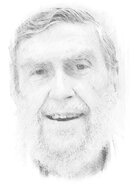 Jay Adams Files
Jay Adams Files
"But what if the person is not around, you never will see him again, is dead? Sin is fundamentally against God—even when it is also against another person. So you can talk to Him about it the matter, seek His forgiveness, and ask for help in being different in the future. He knows where the person is and can settle matters in the other person’s heart in His way, even if you are not present. If he is dead, God has already brought His settlement to the issue." -Jay Adams
thomas adams
Thomas Adams (1583-1652) graduated from Trinity College, Cambridge, with a Bachelor of Arts degree in 1602, and four years later, with a Master of Arts degree from Clare College. Ordained deacon and priest in the Lincoln diocese in 1604, he served as curate of Northill, Bedfordshire from 1605 to 1611. In 1614, he became vicar of Wingrave, Buckinghamshire, and then moved to London in 1619, where he was given the rectories of St. Benet Paul’s Wharf and the small church of St. Benet Sherehog. For his first five years in London, he also held the lectureship of St. Gregory’s, a parish of 3,000. Later on, he preached on occasion at St. Paul’s Cross and Whitehall, and served as chaplain to Henry Montagu, First Earl of Manchester and Chief Justice of the king’s bench. Little is known of the latter part of Adams’s career. He appears to have written nothing for print during the last twenty years of his life. He died in 1652.
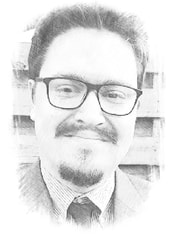 RA Miller
RA Miller
A great sermon from the Proverbs that deals with foolishness is “The Fool and His Sport” by Thomas Adams (1583–1652). The discourse describes four types of fools we may encounter, all with varying outlooks on life. By highlighting the faults of this foolish foursome, Adams provides examples of behaviors and attitudes that are to be avoided. Additionally, these portraits provide us with key evangelistic insights for dealing with a wide variety of people.
To begin, we meet the sad fool. He will never be happy to hear of another’s success, as he languishes in his discontentment at hearing news of his neighbor’s profit. He may even get upset with God when he sees others with blessings he lacks. Adams says this person is “A man of the worst diet,” because he consumes himself in his repining. The sad fool is a bit of a paradox since he is most satisfied when lamenting. If he is to be converted, he must learn to be content with Christ.
Second, we have the glad fool. When I think of the word “fool,” this type of person comes to my mind. For him, everything is a joke. Religion is something to be mocked. You will find it quite difficult to have an earnest conversation with him about sin, as he finds the subject rather amusing. The English clergyman writes, “His mirth is to sully every virtue with some slander, and with a jest to laugh it out of fashion. His usual discourse is filled up with boasting parenthesis of his old sins.” He must begin to understand the seriousness of his offenses, lest he laugh himself out of heaven.
The next fool is the haughty fool. This is the kind of person who thinks too highly of himself. His pride is blinding, and it prevents him from properly assessing his abilities and faults. Adams notes that he “is ever climbing high towers, and never forecasting how to come down.” The haughty fool is above reproach, at least in his own mind. He never reflects on his failures. “When he receives disappointments, he flatters himself still with success,” says Adams. If such a prideful individual is to be right with God, he must see himself for who he truly is, a sinner.
The naughty fool is the fourth and final fool that Adams evaluates. As a particularly greedy individual, the naughty fool would do anything to acquire more wealth for himself. He will, “lose his friends, starve his body, damn his soul, and have no pleasure for it,” remarks Adams. This kind of person’s covetousness trumps any kind of fear they may have for God’s retribution. While Adams has noted several different kinds of fools already, he notes that the avarous fool is the “very fool of all,” which is to say that he is the king of all fools. In his heart, the idol of wealth needs to be torn down. --RA Miller; G3 Ministries; Four Types of Fools 8.24.23
To begin, we meet the sad fool. He will never be happy to hear of another’s success, as he languishes in his discontentment at hearing news of his neighbor’s profit. He may even get upset with God when he sees others with blessings he lacks. Adams says this person is “A man of the worst diet,” because he consumes himself in his repining. The sad fool is a bit of a paradox since he is most satisfied when lamenting. If he is to be converted, he must learn to be content with Christ.
Second, we have the glad fool. When I think of the word “fool,” this type of person comes to my mind. For him, everything is a joke. Religion is something to be mocked. You will find it quite difficult to have an earnest conversation with him about sin, as he finds the subject rather amusing. The English clergyman writes, “His mirth is to sully every virtue with some slander, and with a jest to laugh it out of fashion. His usual discourse is filled up with boasting parenthesis of his old sins.” He must begin to understand the seriousness of his offenses, lest he laugh himself out of heaven.
The next fool is the haughty fool. This is the kind of person who thinks too highly of himself. His pride is blinding, and it prevents him from properly assessing his abilities and faults. Adams notes that he “is ever climbing high towers, and never forecasting how to come down.” The haughty fool is above reproach, at least in his own mind. He never reflects on his failures. “When he receives disappointments, he flatters himself still with success,” says Adams. If such a prideful individual is to be right with God, he must see himself for who he truly is, a sinner.
The naughty fool is the fourth and final fool that Adams evaluates. As a particularly greedy individual, the naughty fool would do anything to acquire more wealth for himself. He will, “lose his friends, starve his body, damn his soul, and have no pleasure for it,” remarks Adams. This kind of person’s covetousness trumps any kind of fear they may have for God’s retribution. While Adams has noted several different kinds of fools already, he notes that the avarous fool is the “very fool of all,” which is to say that he is the king of all fools. In his heart, the idol of wealth needs to be torn down. --RA Miller; G3 Ministries; Four Types of Fools 8.24.23
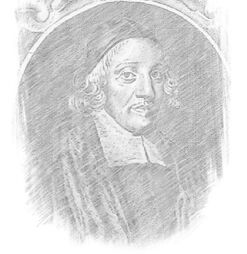 Thomas Adams
Thomas Adams
Slander is a water in great request ; every guest of the devil is continually sipping of this vial. It robs man of his good name, which is above all riches. It is the part of vile men to vilify others, and to climb up to unmerited praise by the stairs of another's disgrace. This is no new dish at some novelist's table, to make a man's discredit as sauce to their meat ; they will toss you the maligned's reputation, with the rackets of reproach, from one to another, and never bandy it away till they have supped. If they want matter, jealousy is fuel enough ; it is crime enough for a formalist (so they term him), that he is but suspected guilty. The calumniator is a wretched thief, and robs man of the best thing he hath, if it be a true maxim that the efficacy of the agent is in the apt disposition of the patient ; whiles thou deprivest man of his credit, thou takest from him all power to do good. The slanderer wounds three at one blow : ( 1 ) The receiver, in poisoning his heart with an uncharitable conceit. ( 2) The reputation of the slandered : for a man's name is like a glass, if it be once cracked it is soon broken ; every briar is ready to snatch at the torn garment. (3) The worst blow lights on his own soul ; for the arrow will rebound. The slandered scapes best : ' for God shall bring forth his righteousness as the light,' &c. , Ps. xxxvii. 6. These are those hogs in a garden, which root up the flowers of a man's good parts. But if there were no receiver there would be no thief ; men would not so burden themselves with the coals of contumely, if they had nowhere to unload them. --Thomas Adams; The Sermons of Thomas Adams
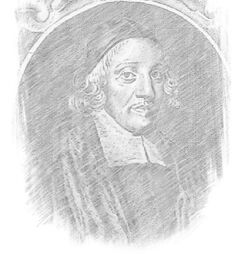 Thomas Adams
Thomas Adams
Live in peace; and the God of love and peace shall be with you.-2 Cor. xiii. II. PEACE is the daughter of righteousness, and the mother of knowledge ; the nurse of arts, and the improvement of all blessings. It is delectable to all that taste it, profitable to them that practice it ; to them that look upon it, amiable ; to them that enjoy it, a benefit invaluable. The building of Christianity knows no other materials. If we look upon the church itself, ' there is one body' ; if upon the very soul of it, ' there is one Spirit ' ; if upon the endowment of it, ' there is one hope ' ; if upon the head of it, ' there is one Lord ' ; if upon the life of it, ' there is one faith ' ; if upon the door of it, ' there is one baptism ' ; if upon the Father of it, ' there is one God, and Father of all,' Eph. iv. 4.
----Thomas Adams; The Sermons of Thomas Adams
----Thomas Adams; The Sermons of Thomas Adams
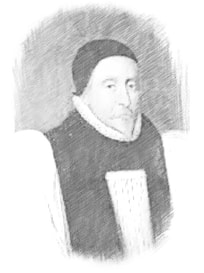 Thomas Adams
Thomas Adams
The fool is the wicked. An ignorant heart is always a sinful heart, and a man without knowledge is a man without grace. So Tamar to Amnon under his ravishing hands: 2 Sam. 13:13, 'Do not this folly;' if thou doest it, 'thou shalt be as one of the fools in Israel.' Ignorance cannot excusare à toto; wilful, not à tanto. 2 Thess. 1:8, 'Christ shall come in flaming fire, rendering vengeance to them that know not God.' The state of these fools is fearful. Like hooded hawks, they are easily carried by the infernal falconer to hell. Their lights are out, how shall their house scape robbing? These fools have a knowledge, but it is to do evil, Jer. 4:22. They have also a knowledge of good, but not scientiam approbationis,—they know, but they refuse it. So God justly quits them; for though he know them ad scientiam, he will not know them ad approbationem, but gives them a Discedite, nescio vos: Matt. 7:23, 'I know you not: depart from me, ye workers of iniquity.' A man may be a fool two ways: by knowing too little, or too much. --Thomas Adams; The Works of Thomas Adams, Volume 1
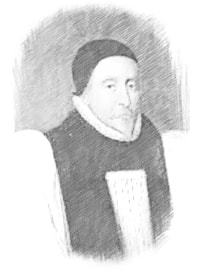 Thomas Adams
Thomas Adams
When a man presumes to know more than he ought, his knowledge is apt to be pursy and gross, and must be kept low. Rom. 12:16, 'Mind not high things,' saith the Apostle. Festus slandered Paul, Acts 26:24, that 'much learning had made him mad.' Indeed, it might have done, if Paul had been as proud of his learning as Festus was of his honour. This is the 'knowledge that puffeth up,' 1 Cor. 8:1. It troubles the brain, like undigested meat in the stomach, or like the scum that seethes into the broth. To avoid this folly, Paul forbids us to 'be wise in our own conceits,' Rom. 12:16: whereof I find two readings, 'Be not wise in yourselves;' and 'Be not wise to yourselves.'
--Thomas Adams; The Works of Thomas Adams, Volume 1
--Thomas Adams; The Works of Thomas Adams, Volume 1
---------------------------------------------
eric alexander
Rev. Eric Alexander (1932– Jan 13, 2023) was born in Glasgow, Scotland, where he was educated at the University of Glasgow, obtaining degrees in Theology, Philosophy, and History. He served for fifteen years as minister of a rural Church of Scotland parish in Ayrshire, and for twenty years as Senior Minister of St. Georges Parish Church in the center of Glasgow. He retired from St. Georges at the end of 1998. Since then, Rev. Alexander has had a wide ministry both in Europe and in the United States, teaching at a number of seminaries including Regent College, The Masters Seminary, Beeson Divinity School, and Westminster Theological Seminary. In addition, he has spoken at the Philadelphia Conference on Reformation Theology over the past twenty years.
From 1959 to 1997, Eric ministered successively in three Church of Scotland congregations, St David’s Knightswood, Glasgow, Loudoun East, Newmilns, and St George’s-Tron, Glasgow. Along with his older brother Tom, Eric had been raised under the ministry of William Fitch in Springburnhill, Glasgow, and from there both were called into the gospel ministry. Tom’s early death aged 29 had a profound impact on Eric.
From 1959 to 1997, Eric ministered successively in three Church of Scotland congregations, St David’s Knightswood, Glasgow, Loudoun East, Newmilns, and St George’s-Tron, Glasgow. Along with his older brother Tom, Eric had been raised under the ministry of William Fitch in Springburnhill, Glasgow, and from there both were called into the gospel ministry. Tom’s early death aged 29 had a profound impact on Eric.
Jan 17, 2023: Wee Flea: Letter from Australia 115 – A Prince in Israel has Fallen – An appreciation of the ministry of Rev Eric Alexander – and his final words in public.
When the Queen died, I felt that it marked the end of an era for the United Kingdom. This weekend I heard of the death of a church leader whose passing for me marks the end of an era for the Church in Scotland. Rev. Eric Alexander was one of the greatest preachers and men of God I have ever known. He was a ‘prince in Israel’ and we mourn his passing (2 Samuel 2:38).
When the Queen died, I felt that it marked the end of an era for the United Kingdom. This weekend I heard of the death of a church leader whose passing for me marks the end of an era for the Church in Scotland. Rev. Eric Alexander was one of the greatest preachers and men of God I have ever known. He was a ‘prince in Israel’ and we mourn his passing (2 Samuel 2:38).
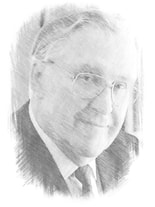 Eric Alexander Files
Eric Alexander Files
I frequently hear of conferences where brethren meet to share insights into new and better methods by which we may fulfill our ministry. I’m sure they are very valuable, and I hope I am not so naïve as to think that methods are unimportant in God’s work. But I have almost never heard of a conference where brethren have met together before God to ask each other: “In all honesty, what are the compelling motives that determine the direction of my ministry?”
Yet Jesus laid great stress on motives: “I seek not my own will but the will of him who sent me” (John 5:30). Looking back over His ministry He says, “I have glorified you by finishing the work you gave me to do” (John 17:4). The glory of the Father was the terminus of everything for Jesus. There was nothing beyond this. And He means it to be so for us.
That is why it is such a serious thing to rob God of His glory. He will not share that glory with another just because He cherishes His own glory above everything else and is jealous of it; it is the motive of everything He does (Isa. 48:11). Paul tells us that the Father’s motive in exalting Christ to the highest place and giving Him a name that is above every name is “the glory of God the Father” (Phil. 2:11). If we have any other end in view, then quite simply we will labor without the blessing of God. --Eric Alexander, Ligonier: The Missing Motive 2/1/10
Yet Jesus laid great stress on motives: “I seek not my own will but the will of him who sent me” (John 5:30). Looking back over His ministry He says, “I have glorified you by finishing the work you gave me to do” (John 17:4). The glory of the Father was the terminus of everything for Jesus. There was nothing beyond this. And He means it to be so for us.
That is why it is such a serious thing to rob God of His glory. He will not share that glory with another just because He cherishes His own glory above everything else and is jealous of it; it is the motive of everything He does (Isa. 48:11). Paul tells us that the Father’s motive in exalting Christ to the highest place and giving Him a name that is above every name is “the glory of God the Father” (Phil. 2:11). If we have any other end in view, then quite simply we will labor without the blessing of God. --Eric Alexander, Ligonier: The Missing Motive 2/1/10
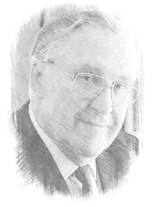 Eric Alexander Files
Eric Alexander Files
"He was a complete exemplar of this text—for me—to live is Christ and to die is gain. No one but a true Christian could make this statement. "Christ is life to me" was his distinct and distinguished testimony from his earliest days, and his leaving this world so few days ago was an exodus into glory…I can just imagine our dearly loved brother there, truly mesmerized as he had never been before, saying, "No eye has seen, no ear has heard, no mind had conceived what God has prepared for those who love him "…There is no human language, there is no human word to express it, but because of what it means to depart and be with Christ which is far better, all we may say today is that "far better" covers everything. It is far better to be in glory than to be here in this world. We will never really understand the full meaning of it until, by God's grace, we join him. See that you join him. See that you join him."
--Eric Alexander, speaking at memorial for Jim Boice; June 2000
--Eric Alexander, speaking at memorial for Jim Boice; June 2000
The Perseverance of the Saints English Christian Sermon by Rev Eric Alexander
paul althaus
Paul Althaus (4 February 1888 – 18 May 1966) was a German Lutheran theologian. He was born in Obershagen in the Province of Hanover, and he died in Erlangen. He held various pastorates from 1914 to 1925, when he was appointed associate professor of practical and systematic theology at the University of Göttingen, becoming full professor two years later. Althaus was moderately critical of Lutheran Orthodoxy and evangelical-leaning Neo-Lutheranism. He termed it a “mistake” to “defend the authenticity and infallibility of the Bible.”
|
It’s 1933, and Franklin Graham is German theologian Paul Althaus
German Protestant theologian Paul Althaus was a strong advocate for the existence of a “unique spiritual vitality” among the German people. As a young military chaplain during World War I, Althaus had become convinced of the special calling of the German Volk (people/nation). He saw the Treaty of Versailles as a deep national humiliation, and he had nothing but scorn for the Weimar Republic, the first democracy in Germany. “Our Volk have had to endure the deepest questions of humanity more painfully and more profoundly than any other people,” Althaus wrote in 1927. “Our people have testified to God throughout history, in which God has entrusted it with something unique.” Althaus was construing Germans as an ethnically distinct group endowed with a divine mission. It is no surprise that he would soon embrace Hitler’s rise to power. (Bjorn Krondorfer/The Christian Century 11/4/20) READ MORE>>>>> |
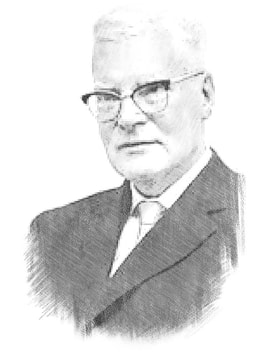 Paul Althaus
Paul Althaus
Conversion is therefore much more than an ethical turning or reversion, for example the turning from ethical looseness or neglect to moral seriousness, from contempt of the commandments of God to obedience to them. Such an ethical conversion is also possible without Christ and the gospel and is not uncommon—for this one does not need Jesus Christ. Conversion in the Christian sense will also include concrete instances of ethical conversion, but certainly not in every case, as the example of the Apostle Paul demonstrates: conversion can also be for a "good man," a Pharisee, therefore an ethically superior person. Here too is it conversion of a sinner. But the sin is in this case not the lack of an ethic, but on the contrary the empty noise of morality, precisely in one’s height, the "erecting their own righteousness" (Rom. 10.3), and so the sin is against the first commandment. Conversion in this sense has a meta-ethical character, and so in this way it is a wholly "becoming new" of a man, a new birth. The man has now come out of unbelieving into believing, out of either unethical or ethical self-glory and security into the humble foundation of grace alone; out of reliance upon his own morality into the vibrant desire of God’s favor only in Christ. This means a transformation of life in the very depth of who he is. It is not to understand growth or development as simply a new step, not as simply a breakthrough into greater depth, stronger earnestness; it leaves its only mark as a break, as a total turning out of spiritual death into life.
--Paul Althaus (1888-1966); Zeitschrift fur Systematische Theologie.
--Paul Althaus (1888-1966); Zeitschrift fur Systematische Theologie.
 Björn Krondorfer
Björn Krondorfer
“Our Protestant churches have greeted the turning point of 1933 as a gift and miracle of God.” Omit the date and that sentence could have been penned by Graham. In fact it is the opening of Althaus’s 1933 book Die deutsche Stunde der Kirche (The German Hour of the Church). To see the hand of God in the election of nationalist leaders is a rhetoric not lost on a contemporary audience. A day after the 2016 election of President Donald Trump, Graham posted these words on Facebook: “I believe that God’s hand intervened Tuesday night to stop the godless, atheistic progressive agenda from taking control of our country . . . God showed up.”
- Bjorn Krondorfer; Christian Century; It’s 1933, and Franklin Graham is German theologian Paul Althaus 11.4.20
- Bjorn Krondorfer; Christian Century; It’s 1933, and Franklin Graham is German theologian Paul Althaus 11.4.20
isaac Ambrose
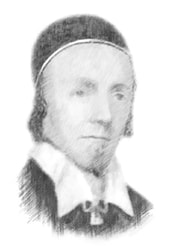
Isaac Ambrose (1604–1664) was an English Puritan divine, the son of Richard Ambrose, vicar of Ormskirk, and was probably descended from the Ambroses of Lowick in Furness, a well-known Roman Catholic family. He entered Brasenose College, Oxford, in 1621, in his seventeenth year. Having graduated B.A. in 1624 and been ordained, he received in 1627 the little cure of Castleton in Derbyshire. By the influence of William Russell, earl of Bedford, he was appointed one of the king’s itinerant preachers in Lancashire, and after living for a time in Garstang, he was selected by the Lady Margaret Hoghton as vicar of Preston. He associated himself with Presbyterianism, and was on the celebrated committee for the ejection of “scandalous and ignorant ministers and schoolmasters” during the Commonwealth.
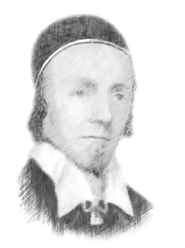 Isaac Ambrose
Isaac Ambrose
"Jesus went forth with his disciples over the brook Kidron, where there was a garden (John 18:1)" many mysteries are included in this word, and I believe it is not without reason that our Savior goes into a garden...Because a garden was the place wherein we fell, and therefore Christ made choice of a garden to begin there the greatest work of our redemption: in the first garden was the beginning of all evils; and in this garden was the beginning of our restitution from all evils; in the first garden, the first Adam was overthrown by Satan, and in this garden the second Adam overcame, and Satan himself was by him overcome; in the first garden sin was contracted; and we were indebted by our sins to God, and in this garden sin was paid for by that great and precious price of the blood of God: in the first garden man surfeited by eating the forbidden fruit, and in this garden Christ sweat it out wonderfully, even by a bloody sweat; in the first garden, death first made its entrance into the world; and in this garden life enters to restore us from death to life again; in the first garden Adam's liberty toxin brought himself and all of us into bondage; and, in this garden, Christ being bound and fettered, we are thereby freed and restored to liberty. I might thus descant in respect of every circumstance, but this is the sum, in a garden first began our sin, and in this garden first began the passion, that great work and merit of our redemption" As Adam in the state of grace and innocence, was placed in a garden, and the first office allotted to him, was to be a gardener; so Jesus Christ appeared first in a garden, and presents himself in a gardener's likeness: and as that first gardener was the parent of sin, the ruin of' mankind, and the author of death; so is this gardener the ransom for our sin; the raiser of our ruins, and the restorer of our life. In some sense, then, and in a mystery, Christ was a gardener; but Mary's mistake was in supposing him the gardener of that only place; and not the gardener of our souls --Isaac Ambrose (Looking Unto Jesus)
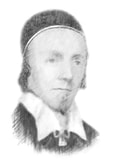 Isaac Ambrose
Isaac Ambrose
It is Christ representative, Christ mediator, Christ a public person; to whom the promises are made, for Christ and his heirs are but all of them one confederate family; and as the covenant of works was made with Adam, and all his; and there were not two covenants; so here the covenant is made with the second Adam and his children, “But every man in his own order, Christ the first fruits, and afterwards they that are Christ’s,” I Cor. 15:23
--Isaac Ambrose (Looking Unto Jesus)
--Isaac Ambrose (Looking Unto Jesus)
bernhard w anderson
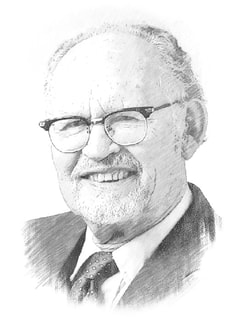
Bernhard W. Anderson (September 25, 1916 – December 26, 2007) was Professor of Old Testament Theology Emeritus at Princeton Theological Seminary and author of many popular books including the best selling 'Understanding the Old Testament.' Born in Dover, Missouri, Dr. Anderson was educated in California where he received degrees from the College of the Pacific and Pacific School of Religion. In 1939, he was ordained to the ministry of The Methodist Church. He served Methodist churches in California, as well as Congregational churches in Connecticut and New York.In 1945 he received the degree of Doctor of Philosophy at Yale University where he specialized in Old Testament studies.... He holds honorary degrees from the Pacific School of Religion, the University of the Pacific, and Colgate University.
As a professor, he served Colgate University in New York, the University of North Carolina, the Colgate Rochester Divinity School, Drew University in New Jersey (where he served as Dean of the Theological School for nine years), and finally as a Professor of Old Testament Theology at Princeton Theological Seminary.
As a professor, he served Colgate University in New York, the University of North Carolina, the Colgate Rochester Divinity School, Drew University in New Jersey (where he served as Dean of the Theological School for nine years), and finally as a Professor of Old Testament Theology at Princeton Theological Seminary.
1990 Hayward Lectures
Dr. Bernhard Anderson speaks on "Expostulation with God"
BERNHARD ANDERSON OBITUARY
Services will be held in Capitola on Sunday for Dr. Bernhard W. Anderson, who passed away peacefully on December 26, 2007 at Dominican Hospital in Santa Cruz at the age of 91. A noted educator, author, and interpreter of the Bible, he is perhaps best known for his widely-used textbook, Understanding the Old Testament. He also wrote a popular church study guide, The Unfolding Drama of the Bible, and a study of the Psalms, Out of the Depths. Born in Missouri but raised in California, Dr. Anderson graduated from the College of the Pacific now the University of the Pacific. He received his divinity degree from the Pacific School of Religion in 1939 and was ordained as a minister of the United Methodist Church. Before going into teaching, he served churches in Sunnyvale and Millbrae, California. Dr. Anderson received his Doctorate of Theology from Yale University in 1942 and went on to a distinguished career as a professor and Old Testament scholar. He was appointed Dean of the Theological School of Drew University in 1954, and in 1968 became Professor of Old Testament Theology at Princeton Theological Seminary. After his retirement in 1983, Dr. Anderson continued to teach and lecture widely. In 1989 he moved to the Santa Cruz area, where he was a devout parishioner of St. John's Episcopal Church in Capitola. He leaves his wife, Monique Anderson and stepson Dick Martin of Santa Cruz, his former wife Joyce Griswold of Haverford, PA, his children Carol, Joan, Ronald, and Ruth, his six grandchildren, and a host of loving extended family members, friends, and colleagues.
A memorial service will be held on Sunday, December 30, 2007 at St. John's Episcopal Church, 216 Oakland Ave. in Capitola, beginning at 1:30 p.m. Remembrances in Dr. Anderson's name may be made to St. John's Episcopal Church, 216 Oakland Ave., Capitola, Ca. 95010
Services will be held in Capitola on Sunday for Dr. Bernhard W. Anderson, who passed away peacefully on December 26, 2007 at Dominican Hospital in Santa Cruz at the age of 91. A noted educator, author, and interpreter of the Bible, he is perhaps best known for his widely-used textbook, Understanding the Old Testament. He also wrote a popular church study guide, The Unfolding Drama of the Bible, and a study of the Psalms, Out of the Depths. Born in Missouri but raised in California, Dr. Anderson graduated from the College of the Pacific now the University of the Pacific. He received his divinity degree from the Pacific School of Religion in 1939 and was ordained as a minister of the United Methodist Church. Before going into teaching, he served churches in Sunnyvale and Millbrae, California. Dr. Anderson received his Doctorate of Theology from Yale University in 1942 and went on to a distinguished career as a professor and Old Testament scholar. He was appointed Dean of the Theological School of Drew University in 1954, and in 1968 became Professor of Old Testament Theology at Princeton Theological Seminary. After his retirement in 1983, Dr. Anderson continued to teach and lecture widely. In 1989 he moved to the Santa Cruz area, where he was a devout parishioner of St. John's Episcopal Church in Capitola. He leaves his wife, Monique Anderson and stepson Dick Martin of Santa Cruz, his former wife Joyce Griswold of Haverford, PA, his children Carol, Joan, Ronald, and Ruth, his six grandchildren, and a host of loving extended family members, friends, and colleagues.
A memorial service will be held on Sunday, December 30, 2007 at St. John's Episcopal Church, 216 Oakland Ave. in Capitola, beginning at 1:30 p.m. Remembrances in Dr. Anderson's name may be made to St. John's Episcopal Church, 216 Oakland Ave., Capitola, Ca. 95010
samuel angus
Samuel Angus (27 August 1881 – 17 November 1943) was professor of New Testament and Church History at St Andrew's College in the University of Sydney from 1915–43.
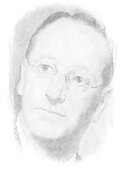 Samuel Angus
Samuel Angus
Jesus is not accredited to us today by his miracles, or by a virgin birth, or by a resurrection from an underworld, or by a reanimation of his body from the grave, or by fulfillment of prophecies; he is accredited by his long train of conquests over the loyalties of men, and chiefly by the immediate, intimate and inevitable appeal made by him to everything that is best and God-like in each of us, and by his ability to “make men fall in love with him”, and “to win the world to his fair sanctities”
--Samuel Angus; Jesus in the Lives of Men (1933)
--Samuel Angus; Jesus in the Lives of Men (1933)
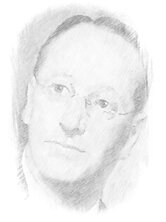 Samuel Angus
Samuel Angus
Let us honour Jesus, not by excluding each other from Christian fellowship or by hurling charges of heresy, or by denying the validity of others’ experience; but with saint Ignatius “let us strive zealously to be imitators of the Lord,” and “become imitators of Jesus Christ as he himself was imitator of the Father,” Such imitation of Christ will put into operation all the spiritual capacities with which we are endowed. In this way the disciples of Jesus, while joyfully recognizing that He is the Light of the World, will not shirk the high privilege and the tremendous responsibility laid upon them by the terms of their discipleship – ‘You are the light of the world.’ --Samuel Angus; Jesus in the Lives of Men (1933)
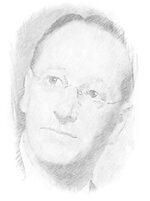 Samuel Angus
Samuel Angus
Are the alleged doctrines of Presbyterianism static? Is it simply a question of deciding whether a statement is orthodoxy or heresy? Or is truth the supreme quest for both orthodox and heretics. Are we to fear the new because it is new, or revere the old for its sheer age? … Are we bound for ever to the forms and beliefs of our predecessors? Nay, more, are we bound forever even to the contents of those beliefs? Must we accept and uphold all the beliefs that have been admitted by the Presbyterian Church during the past, and are the past practices of our Church, including the axe and scaffold, to be maintained to-day? --Samuel Angus; Truth and Tradition
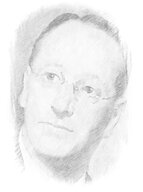 Samuel Angus
Samuel Angus
But creed and philosophy of religion are secondary to apprehension of spiritual realities and to religion itself. ... My creed and philosophy do not separate me from my fellows: these are but symbols of the faith in things invisible shared by my fellows and me. ... We are not subject to dogmas. Rather dogmas are subject to us from whose experiences and fallible ratiocination and religious polemics they took rise. ... --Samuel Angus; Truth and Tradition

Death of Rev Dr Samuel Angus: Nov 17, 1943
Late Rev Or S. Angus University of Sydney, aged 62. Dr Angus was a man with a world-wide reputation for scholarship and originality of mind, and it was the latter quality which impelled him on occasions to differ from the opinionsof many of his co-religionists as the advocate of a Unitive Christianity. Because of his belief that essential Christianity was not governed by any particular orthodoxy, he became for a time the centre of a prolonged controversy among adherents of the Presbyterian Church. This eventually developed into open charges of heresy.
The debates, discussions, and floods of correspondence which sprang from this theological issue culminated in 1934 in an investigation by the Judicial Commission of the Presbyterian Church of Australia, which found substantially in favour of Dr Angus in the matter of his teachings and writings. It dismissed the appeal by the NSW Presbyterian
Assembly against the decision in so far as the appeal asked for the institution of a judicial process, and urged the parties to take every opportunity for frank and brotherly conference on matters where differences of opinion arose. The controversy again arose in 1936, and in 1939, when hi September the General Assembly, after discussing the question in private for 6 hours in Melbourne, decided to postpone further consideration of it. REJECTED US OFFER
Dr Angus, who might have escaped the whole bitterness by accepting the offer of an American position at nearly 3 times the salary he received in Australia, decided that he owed it not only to his own convictions but to the loyalty of his friends and supporters to see the matter through. He suffered keenly under the criticism, some of it extremely bitter, which was heaped on him over a period of years. This spiritual distress in no way affected the kindliness and charm which endeared him to his friends. A great lover of the classics, Dr Angus was a versatile linguist and a gifted speaker. His lectures, like his sermons, were simple and direct. He was born in Ulster of poor parents. He won a scholarship to Queen's (now University) College, Galway. Later he was a student at Princeton University, and in Germany. Before assuming the professorship of the New Testament and Historical Theology at the University of Sydney, he was for 2 years chaplain of Scots Church in Algiers. He wrote prolifically on theological subjects.
Late Rev Or S. Angus University of Sydney, aged 62. Dr Angus was a man with a world-wide reputation for scholarship and originality of mind, and it was the latter quality which impelled him on occasions to differ from the opinionsof many of his co-religionists as the advocate of a Unitive Christianity. Because of his belief that essential Christianity was not governed by any particular orthodoxy, he became for a time the centre of a prolonged controversy among adherents of the Presbyterian Church. This eventually developed into open charges of heresy.
The debates, discussions, and floods of correspondence which sprang from this theological issue culminated in 1934 in an investigation by the Judicial Commission of the Presbyterian Church of Australia, which found substantially in favour of Dr Angus in the matter of his teachings and writings. It dismissed the appeal by the NSW Presbyterian
Assembly against the decision in so far as the appeal asked for the institution of a judicial process, and urged the parties to take every opportunity for frank and brotherly conference on matters where differences of opinion arose. The controversy again arose in 1936, and in 1939, when hi September the General Assembly, after discussing the question in private for 6 hours in Melbourne, decided to postpone further consideration of it. REJECTED US OFFER
Dr Angus, who might have escaped the whole bitterness by accepting the offer of an American position at nearly 3 times the salary he received in Australia, decided that he owed it not only to his own convictions but to the loyalty of his friends and supporters to see the matter through. He suffered keenly under the criticism, some of it extremely bitter, which was heaped on him over a period of years. This spiritual distress in no way affected the kindliness and charm which endeared him to his friends. A great lover of the classics, Dr Angus was a versatile linguist and a gifted speaker. His lectures, like his sermons, were simple and direct. He was born in Ulster of poor parents. He won a scholarship to Queen's (now University) College, Galway. Later he was a student at Princeton University, and in Germany. Before assuming the professorship of the New Testament and Historical Theology at the University of Sydney, he was for 2 years chaplain of Scots Church in Algiers. He wrote prolifically on theological subjects.
ole anthony
Dec 30, 2021: Religion News: Observers, detractors and preachers of religion who died in 2021
Ole Anthony. The longtime president of Dallas-based Trinity Foundation Inc. was a critic of prosperity gospel televangelists. Anthony died April 16 at age 82. His Texas nonprofit helped the homeless, held Bible studies and featured a radio show before Anthony spent three decades investigating televangelists such as Robert Tilton, Benny Hinn and Jan and Paul Crouch. The foundation’s investigation of Tilton’s direct mail operation was highlighted on ABC’s “Primetime Live” broadcast. Tilton’s ministry denied the foundation’s claim that it threw away prayer requests but kept checks from donors. “It was awesome,” Anthony told the Dallas Observer in 2006. “The one aspect of the program that everybody remembers is when Tilton crossed over the sleaze line. They remember the prayer requests in the trash. A producer at ABC told me it was the No. 1 topic on talk radio for weeks.” The Trinity Foundation’s tribute at the time of Anthony’s death noted his “abrasive style” and acknowledged some group members had left due to accusations of “cult-like tactics.” But it added: “Most disagreed and remained, however, and the community he founded survived and evolved.”
Ole Anthony. The longtime president of Dallas-based Trinity Foundation Inc. was a critic of prosperity gospel televangelists. Anthony died April 16 at age 82. His Texas nonprofit helped the homeless, held Bible studies and featured a radio show before Anthony spent three decades investigating televangelists such as Robert Tilton, Benny Hinn and Jan and Paul Crouch. The foundation’s investigation of Tilton’s direct mail operation was highlighted on ABC’s “Primetime Live” broadcast. Tilton’s ministry denied the foundation’s claim that it threw away prayer requests but kept checks from donors. “It was awesome,” Anthony told the Dallas Observer in 2006. “The one aspect of the program that everybody remembers is when Tilton crossed over the sleaze line. They remember the prayer requests in the trash. A producer at ABC told me it was the No. 1 topic on talk radio for weeks.” The Trinity Foundation’s tribute at the time of Anthony’s death noted his “abrasive style” and acknowledged some group members had left due to accusations of “cult-like tactics.” But it added: “Most disagreed and remained, however, and the community he founded survived and evolved.”
Apr 6, 2006: Dallas Observer: The Cult of Ole
The amateur detectives plopped onto couches, waiting to see their handiwork on national television. Nervous? A bit. Excited? Oh, yeah.For months they'd been sleuthing. Diving in dumpsters, following trails of documents, going undercover, telling lies if necessary, all in the service of God.
And of their leader, a tall charismatic man named Ole Anthony. Many of those curled on the sofas in the office of the Trinity Foundation had been with him for more than a decade. They were idealistic young Christians, drawn in by his energy, brilliance and demand for complete transparency. They'd given up their money, their careers and, for some, their own wills to follow Anthony, just as he followed Jesus, albeit in his own idiosyncratic way.
No one who met Ole (pronounced O-lee) Anthony ever forgot him. Though his blond hair had turned white, his eyes were still the same piercing blue, and they zeroed in on listeners with a ferocity that could be unnerving. Everyone in the room had come under his withering glare at one time or another and they loved him for it, or said they did.
The amateur detectives plopped onto couches, waiting to see their handiwork on national television. Nervous? A bit. Excited? Oh, yeah.For months they'd been sleuthing. Diving in dumpsters, following trails of documents, going undercover, telling lies if necessary, all in the service of God.
And of their leader, a tall charismatic man named Ole Anthony. Many of those curled on the sofas in the office of the Trinity Foundation had been with him for more than a decade. They were idealistic young Christians, drawn in by his energy, brilliance and demand for complete transparency. They'd given up their money, their careers and, for some, their own wills to follow Anthony, just as he followed Jesus, albeit in his own idiosyncratic way.
No one who met Ole (pronounced O-lee) Anthony ever forgot him. Though his blond hair had turned white, his eyes were still the same piercing blue, and they zeroed in on listeners with a ferocity that could be unnerving. Everyone in the room had come under his withering glare at one time or another and they loved him for it, or said they did.
gleason archer jr.
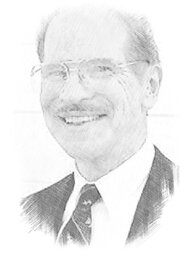
Gleason Leonard Archer, Jr. (Born:October 29, 1880 in Norwell, MA) (Died: June 28, 1966),
Gleason grew up in Boston and attended Boston Latin School. His father founded the Suffolk University Law School in Boston where the family lived during the school year, retreating to Norwell during the summers. Gleason’s mother was a Christian, a member of the Park Street Church, and he came to know Christ at an early age through her influence. Gleason attended Harvard College and received his B.A. degree in 1938, followed in 1939 by his LL.B. degree from Suffolk University Law School in Boston. His took his A.M. degree from Harvard Graduate School of Arts and Sciences in 1940, and his Ph.D. from the same institution in 1944. He graduated with his Bachelor of Divinity from Princeton Theological Seminary the following year. There he studied Hebrew, Aramaic, and Arabic. On May 11, 1939, Gleason married Virginia Lillian Atkinson at Park Street Church, with H. J. Ockenga presiding. Gleason taught languages at Suffolk University in Boston and served on that school’s Trustee Board. Gleason was also an assistant pastor at Park Street Church in Boston and assistant dean of the Boston Evening School of the Bible. His taste for the Old Testament came from Harold John Ockenga, pastor of the Park Street Church. Gleason and Virginia, with their two sons, then moved to Pasadena, CA. He served as acting dean of Fuller Theological Seminary in 1948–49, and as professor of Biblical Languages, a position he held for nearly two decades. His church affiliation was Presbyterian, U.S.A. until he was removed from the Monmouth Presbytery by forces opposed to his presence at Fuller. Dr. Archer taught New Testament Greek, biblical Hebrew, Aramaic, Arabic, Akkadian, Egyptian, and Syriac. Gleason’s wife, Virginia, passed away in August, 1962. Over a year later, Gleason met Sandra Paula Larsen, who spoke in chapel at Fuller. They shortly became engaged just before he left to teach for a six-month Sabbatical in Beirut, Lebanon. Upon his return, they were married on March 21, 1964 at Lake Avenue Congregational Church by Ray Ortlund. Gleason resigned from Fuller after the school departed from its original inerrancy position regarding the Scriptures. From 1965–86, Gleason Archer served as professor of Old Testament and Semitics at Trinity Evangelical Divinity School in Deerfield, IL, then as Professor Emeritus from 1989–91.
Gleason grew up in Boston and attended Boston Latin School. His father founded the Suffolk University Law School in Boston where the family lived during the school year, retreating to Norwell during the summers. Gleason’s mother was a Christian, a member of the Park Street Church, and he came to know Christ at an early age through her influence. Gleason attended Harvard College and received his B.A. degree in 1938, followed in 1939 by his LL.B. degree from Suffolk University Law School in Boston. His took his A.M. degree from Harvard Graduate School of Arts and Sciences in 1940, and his Ph.D. from the same institution in 1944. He graduated with his Bachelor of Divinity from Princeton Theological Seminary the following year. There he studied Hebrew, Aramaic, and Arabic. On May 11, 1939, Gleason married Virginia Lillian Atkinson at Park Street Church, with H. J. Ockenga presiding. Gleason taught languages at Suffolk University in Boston and served on that school’s Trustee Board. Gleason was also an assistant pastor at Park Street Church in Boston and assistant dean of the Boston Evening School of the Bible. His taste for the Old Testament came from Harold John Ockenga, pastor of the Park Street Church. Gleason and Virginia, with their two sons, then moved to Pasadena, CA. He served as acting dean of Fuller Theological Seminary in 1948–49, and as professor of Biblical Languages, a position he held for nearly two decades. His church affiliation was Presbyterian, U.S.A. until he was removed from the Monmouth Presbytery by forces opposed to his presence at Fuller. Dr. Archer taught New Testament Greek, biblical Hebrew, Aramaic, Arabic, Akkadian, Egyptian, and Syriac. Gleason’s wife, Virginia, passed away in August, 1962. Over a year later, Gleason met Sandra Paula Larsen, who spoke in chapel at Fuller. They shortly became engaged just before he left to teach for a six-month Sabbatical in Beirut, Lebanon. Upon his return, they were married on March 21, 1964 at Lake Avenue Congregational Church by Ray Ortlund. Gleason resigned from Fuller after the school departed from its original inerrancy position regarding the Scriptures. From 1965–86, Gleason Archer served as professor of Old Testament and Semitics at Trinity Evangelical Divinity School in Deerfield, IL, then as Professor Emeritus from 1989–91.
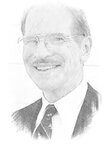 Gleason Archer
Gleason Archer
From a superficial reading, the impression received is that the entire creative process took place in six twenty-four hour days. If this was the true intent of the Hebrew author (a questionable deduction, as will be presently shown), this seems to run counter to modern scientific research, which indicates that the planet Earth was created several billion years ago. -Gleason Archer
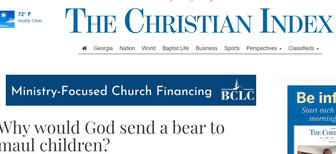
Feb 4, 2022: The Christian Index: Why would God send a bear to maul children?
II Kings 2: 23-24: “From there Elisha went up to Bethel. As he was walking up the path, some small boys came out of the city and harassed him, chanting, ‘Go up, baldy! Go up, baldy!’ He turned around, looked at them, and cursed them in the name of the Lord. Then two female bears came out of the woods and mauled 42 of the children.”
Gleason Archer puts everything in perspective when he describes this large roving band of teenagers as “a serious public danger, quite as grave as the large youth gangs that roam the ghetto sections of our modern American cities.” The Apologetics Study Bible explains: “The Hebrew phrase for ‘small boys’ refers to adolescents from 12 to 30 years old (see I Samuel 20:35; I Kings 3:7; 11:17). It is unlikely that these youths were younger than 12 years old.” Contrary to the caricature, Elisha was a young man, probably in his mid twenties, though obviously bald.
We are also reminded that the real issue was not how this gang showed contempt and “disrespect for God’s prophet,” but revealed utter “disrespect for the Lord.” Therefore, “a strong message was sent to the city and parents” reminiscent of Leviticus 26:21-22. This Scripture tells how hostility toward God and an unwillingness to obey Him can result in being besieged by plagues and wild animals.
The message was a corrective message to address current attitudes and behavior that if heeded would ward off worse sins and greater judgment. The gang was shocked and silenced when mauled (not necessarily killed) by the bears, and their parents and community were warned to repent of their sins (reflected in their children) and obey God before worse judgments befell them!
Walter C. Kaiser writes how the eventual fall of Israel “would have been avoided had the people repented after the bear attack.” They did not.
According to II Chronicles 36:16 we read how “they kept ridiculing God’s messengers, despising His words, and scoffing at His prophets … As Kaiser wisely states: The “bear attack shows God trying repeatedly to bring his people back to himself through smaller judgments” so that they could avoid a worse “full force” judgment.
II Kings 2: 23-24: “From there Elisha went up to Bethel. As he was walking up the path, some small boys came out of the city and harassed him, chanting, ‘Go up, baldy! Go up, baldy!’ He turned around, looked at them, and cursed them in the name of the Lord. Then two female bears came out of the woods and mauled 42 of the children.”
Gleason Archer puts everything in perspective when he describes this large roving band of teenagers as “a serious public danger, quite as grave as the large youth gangs that roam the ghetto sections of our modern American cities.” The Apologetics Study Bible explains: “The Hebrew phrase for ‘small boys’ refers to adolescents from 12 to 30 years old (see I Samuel 20:35; I Kings 3:7; 11:17). It is unlikely that these youths were younger than 12 years old.” Contrary to the caricature, Elisha was a young man, probably in his mid twenties, though obviously bald.
We are also reminded that the real issue was not how this gang showed contempt and “disrespect for God’s prophet,” but revealed utter “disrespect for the Lord.” Therefore, “a strong message was sent to the city and parents” reminiscent of Leviticus 26:21-22. This Scripture tells how hostility toward God and an unwillingness to obey Him can result in being besieged by plagues and wild animals.
The message was a corrective message to address current attitudes and behavior that if heeded would ward off worse sins and greater judgment. The gang was shocked and silenced when mauled (not necessarily killed) by the bears, and their parents and community were warned to repent of their sins (reflected in their children) and obey God before worse judgments befell them!
Walter C. Kaiser writes how the eventual fall of Israel “would have been avoided had the people repented after the bear attack.” They did not.
According to II Chronicles 36:16 we read how “they kept ridiculing God’s messengers, despising His words, and scoffing at His prophets … As Kaiser wisely states: The “bear attack shows God trying repeatedly to bring his people back to himself through smaller judgments” so that they could avoid a worse “full force” judgment.
Athanasius of Alexandria
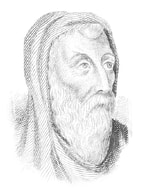
Athanasius of Alexandria (b. ca. 296-298 – d. 2 May 373), also referred to as St. Athanasius the Great, St. Athanasius I of Alexandria, St Athanasius the Confessor and (primarily in the Coptic Orthodox Church) St Athanasius the Apostolic, was the 20th bishop of Alexandria. His episcopate lasted 45 years (c. 8 June 328 – 2 May 373), of which over 17 were spent in five exiles ordered by four different Roman emperors. He is considered to be a renowned Christian theologian, a Church Father, the chief defender of Trinitarianism against Arianism, and a noted Egyptian leader of the fourth century.
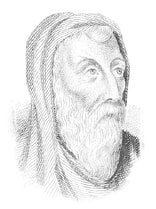 Athanasius of Alexandria
Athanasius of Alexandria
“He, the Life of all, our Lord and Saviour, did not arrange the manner of his own death lest He should seem to be afraid of some other kind. No. He accepted and bore upon the cross a death inflicted by others, and those other His special enemies, a death which to them was supremely terrible and by no means to be faced; and He did this in order that, by destroying even this death, He might Himself be believed to be the Life, and the power of death be recognized as finally annulled. A marvelous and mighty paradox has thus occurred, for the death which they thought to inflict on Him as dishonor and disgrace has become the glorious monument to death's defeat.”
― St. Athanasius, On the Incarnation
― St. Athanasius, On the Incarnation
 Athanasius of Alexandria
Athanasius of Alexandria
“Dead men cannot take effective action; their power of influence on others lasts only till the grave. Deeds and actions that energize others belong only to the living. Well, then, look at the facts in this case. The Saviour is working mightily among men, every day He is invisibly persuading numbers of people all over the world, both within and beyond the Greek-speaking world, to accept His faith and be obedient to His teaching. Can anyone, in face of this, still doubt that He has risen and lives, or rather that He is Himself the Life? Does a dead man prick the consciences of men...?”
― St. Athanasius, On the Incarnation
― St. Athanasius, On the Incarnation
 Athanasius of Alexandria
Athanasius of Alexandria
“The body of the Word, then, being a real human body, in spite of its having been uniquely formed from a virgin, was of itself mortal and, like other bodies, liable to death. But the indwelling of the Word loosed it from this natural liability, so that corruption could not touch it. Thus is happened that two opposite marvels took place at once: the death of all was consummated in the Lord's body; yet, because the Word was in it, death and corruption were in the same act utterly abolished.”
― St. Athanasius, On the Incarnation
― St. Athanasius, On the Incarnation
Gladys Aylward |
- Wikipedia -
|
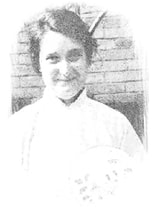
Gladys May Aylward (24 February 1902 – 3 January 1970) was a British-born evangelical Christian missionary to China, whose story was told in the book The Small Woman, by Alan Burgess, published in 1957, and made into the film The Inn of the Sixth Happiness, starring Ingrid Bergman, in 1958. The film was produced by Twentieth Century Fox, and filmed entirely in North Wales and England
Feb 1, 2023: Ligonier: Who Was Gladys Aylward?
Gladys Aylward was a determined woman. Once she felt the call to the mission field, she refused to allow any excuses to hold her back. Although she appeared to lack the resources for mission work, God affirmed her calling and gave her many opportunities to overcome practical obstacles.
Gladys Aylward was a determined woman. Once she felt the call to the mission field, she refused to allow any excuses to hold her back. Although she appeared to lack the resources for mission work, God affirmed her calling and gave her many opportunities to overcome practical obstacles.
Sept 8, 2022: China Christian Daily: In Memory of the 120th Birthday of British Missionary Gladys Aylward, Evangelist Shares Her Mission in Turkey
A seminar with the theme "Cross-Cultural Mission Study" was held to mark the 120th birthday of a female British-born missionary named Gladys Aylward, with a senior cross-cultural evangelist talking about her preaching experience in Turkey.
A seminar with the theme "Cross-Cultural Mission Study" was held to mark the 120th birthday of a female British-born missionary named Gladys Aylward, with a senior cross-cultural evangelist talking about her preaching experience in Turkey.




